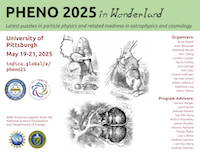Speaker
Description
Recent years have seen growing interest in exploring quantum information principles within particle scattering processes, both in theoretical and experimental physics. Magic, a resource that quantifies computational advantages in quantum systems, offers a distinct measure of quantumness beyond conventional metrics like entanglement. As researchers investigate the role of magic in scattering final states, determining the fundamental limits of magic attainable in physical systems has emerged as a critical challenge. By employing the stabilizer Rényi entropy as a measure of magic, we establish—for the first time—the maximum achievable magic in a two-qubit system. We identify all states saturating this bound as fiducial states belonging to Weyl-Heisenberg mutually unbiased bases (MUBs), thereby connecting magic optimization to foundational quantum structures. Furthermore, we demonstrate the nuanced interplay between magic and entanglement in these states. These findings offer critical guidance for probing quantum field theories with enhanced quantum computational properties, advancing the intersection of high-energy physics and quantum information science.

